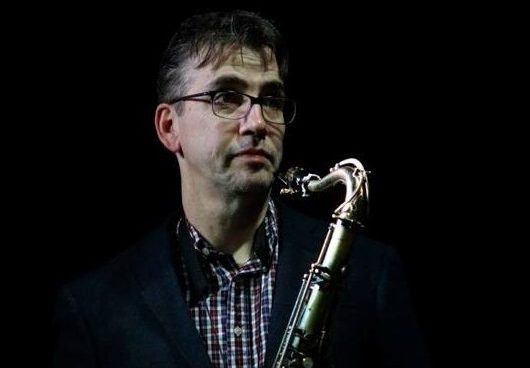I typed this the other day in anticipation of being asked:
“How do you balance being a performer and educator?”
There isn’t really much balance. I can’t treat them as opposites. There’s usually a misinterpretation about educators. Dizzy Gillespie was the greatest educator. He had a message and he wanted to share it. This is great music. It’s about the struggle of America to overcome it’s horrible sin of slavery and continued oppression. Learning the notes is part of it, but educational institutions in this country founded and constructed on a European model often try to pluck the notes out of the music and leave the rest behind. In this model learning happens in the University and performing happens in the club or concert hall or jazz festival. If we look at ourselves as either “educators” or “players” we shortchange both activities. Educators who teach without a real connection to the practice of performing are at a disadvantage. I was like that. But I tried to keep the passion of a performer as I was getting pigeon-holed as an educator. But now as a busy performing musician it’s much easier for me to instill the reality of jazz performance in a traditional educational venue – classroom or private teaching studio. Some of the best lessons, my students tell me, is when I have a lesson to teach and I’m supposed to be preparing music for a gig. So I teach the music to the student. They get to see TS Monk’s book and read through the tunes. Or I’m memorizing some of Nat Adderley’s book while they’re sight reading – I’m teaching them to sight read while they’re helping me memorizing a tune. This is where teacher and performer are one. By the same token, the bandstand has to educate, too. When we’re on stage we have to communicate what is happening, who has soloed, why the tune is significant. Jam sessions are the ultimate educational tool. If a jazz musician can function at a jam session, they are ready for so much more. I try to play with the students and for them. I want them to look for challenges. To strive to know enough tunes that they can function without having to be spoon fed. I want them to be aware of the economics of the club, how we strive to invite in and entertain the lay people. There’s so much learning that goes on in the club that never would get translated into the classroom.
I’m honored and humbled to be a working jazz musician in New York City. This is not an easily attainable goal, in fact I often wonder if it’s a reasonable goal. To me the goal has to be to play music as often and as well as possible; to lose oneself in the pursuit of mastery. Having practical goals isn’t bad, but it can’t be the reason. If you’re goal is to put food on the table and get health insurance, there are better ways. But if you’re looking for spiritual fulfillment and to give your life meaning – there’s nothing greater than this music. It’s been quite a journey and with all the years of frustration I experienced, it’s easy for me now to see what a blessing my life has become. A working saxophonist and respected teacher.
I’ve read posts on social media lately by young musicians complaining about the way things are. Older cats don’t give them a chance. I know that sometimes I’m included in north Jersey scene as being an “insider” and being one of the people keeping other people from working. But I want to tell the younger musicians (and sometimes disgruntled musicians of my generation) that every moment you spend looking at what isn’t being done for you or looking to assign blame for your lack of success to someone else, you’re missing an opportunity to give of this music. You’re missing an opportunity to listen more, practice more, you’re removing the joy that got you caught up in this music in the first place. I feel I was usually successful at responding to every slight by rededicating myself to the music. Practicing harder. Learning how to prepare for and get a call from a band leader and then later, how to keep that gig and get return calls. It’s hard and it doesn’t make much sense. There are fewer and fewer bands that actually have a chair for a saxophonist. And if you’re working 30 dates a year with a band, that’s outstanding. There are no more 50 week a year gigs.
At some point, hard work makes you valued. To feel valued for what you do, when you’re doing what love is an incredible gift. I remember for years wishing I had more private students, more classes, more gigs and more teaching opportunities. But it seems that overnight that changed. I had to trim back my teaching activities, I find myself relieved to have a Saturday night off. I don’t ask often how much a gig pays. I do it if I know the music will be high level and I’ll be challenged. If not, I don’t need to even worry about it. I’m not going to destroy my inner peace playing in a situation that doesn’t support my musical vision.

Thanks Mike for your post, really enjoyed reading it. Your new website is nice too!